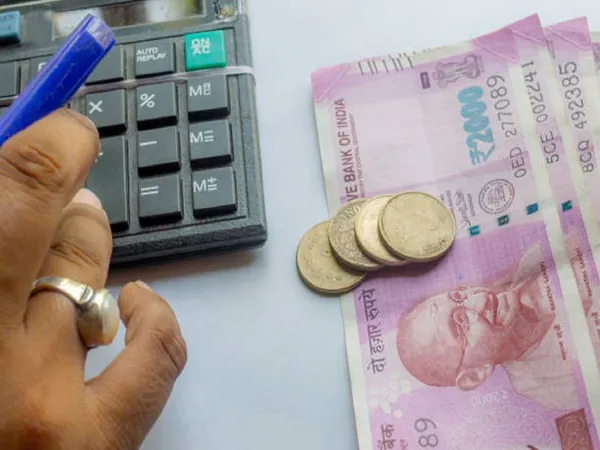
Income Tax: If you use every investment and reimbursement to the maximum extent, then it is possible that you can get tax exemption even on salary up to Rs. 12 lakh, that is, there will be zero tax on your salary (Zero tax on rs. 12 lakh salary). Let’s know about it in detail.
The phase of filing Income Tax Return has started. The people who are facing tax liability are thinking that if they had planned a little in advance, would the tax be deducted less or not. If you start tax planning as soon as the year starts, then you can save a lot of tax. Sometimes the tax on your salary can also be zero.
For this, you can use the deductions and exemptions available under the Income Tax Act. Along with this, you will also have to get your salary structure done in such a way that you can get the benefit of maximum reimbursement. If you use every investment and reimbursement to the maximum extent, then it is possible that you can get tax exemption even on salary up to Rs. 12 lakh, that is, there will be zero tax on your salary (Zero tax on rs. 12 lakh salary).
First work on your salary structure
During the beginning of the year, there is often an option to change the salary structure. You can decide by yourself how much money you need as reimbursement and how much money as taxable salary. In reimbursement, options like conveyance, LTA, food-coupon or entertainment, internet or phone bill and petrol are available. HRA plays an important role in saving tax. Let us know how you can save your tax with the help of all these.
First understand how much HRA can be benefited
When you are claiming HRA, you have to extract 3 types of figures. Whichever figure is the lowest among them, you get tax exemption on it.
- The HRA given by the company in the salary can be claimed.
- HRA can be claimed up to 50% of basic salary in metro cities and 40% of basic salary in non-metro cities.
- After deducting 10% of the basic salary from your total rent, you can claim that much HRA.
- If you live in a metro city, then it is common to have a house rent of 15-20 thousand rupees in today’s time. Let us assume that your house rent is Rs 20,000, which is about 20% of your monthly salary. Whereas the basic salary is about 50% of your CTC, so let’s assume that your basic salary is around Rs 6 lakh. In such a situation, in the above mentioned 3 situations, your HRA will be something like this.
- Usually about 40 percent of the basic salary is received from the company as HRA. That is, you will get HRA of about Rs 2.4 lakh.
- Due to living in a metro city, you can take HRA up to 50% i.e. Rs 3 lakh.
- According to 20 thousand rupees, your annual rent is about 2.4 lakh rupees. From this, after deducting 10% of basic salary i.e. 60 thousand rupees, your amount comes to 1.8 lakh rupees.
Now if seen, Rs 1.8 lakh is the lowest among these three figures, so you can get exemption under HRA on this much money.
Leave travel allowance
You can take advantage of this twice in 4 years. Under this, you can go somewhere and you can get the benefit of Leave Travel Allowance on the fare for commuting. Generally, about 10 percent of the basic salary is given by the companies as leave travel allowance. Now if you have a basic salary of Rs 6 lakh, then you will get a leave travel allowance of about Rs 60 thousand. If you calculate the average on an annual basis, then you will get a tax exemption of about Rs 30,000. If leave travel allowance is not included in your salary, then get it included so that you can take advantage of it. Keep in mind, if you fall in the 30 per cent slab, you can save a lot of money with the help of LTA. It would not be wrong to say that with the help of LTA you will get 30 percent cheaper in a way.
Must get reimbursement
Many things are given to the employees by all the companies as reimbursement. Let’s know about each one by one and understand how much money you can save.
Conveyance Reimbursement:
Under this, you can usually get a reimbursement of up to Rs 1-1.5 lakh from the company. Let us assume that your company gives you conveyance reimbursement of Rs 1.5 lakh, then this amount will become non-taxable to you.
Internet Bill:
In today’s time, almost every business needs internet broadband. You can get internet broadband with good speed in Rs 700-1000 per month. In such a situation, the company gives almost the same amount in reimbursement. If you do not have this component in your salary, then include it in your salary and get tax exemption. Let’s assume that under this you can make non-taxable up to Rs 1000 per month i.e. Rs 12000 annually.
Food or Entertainment Reimbursement:
Earlier this reimbursement was in the form of food coupons, which can now be redeemed by showing your food bill. Under this, the company usually gives around 2000 rupees per month i.e. 24 thousand rupees easily annually.
Uniform, Fuel, Books & Others:
Different companies also give some reimbursement in the name of uniform, fuel, books, magazine, paper etc. Talk to the HR of your company once and ask if these facilities are there. If you get these reimbursements, you will be able to save tax on some more money. Generally, by combining all these, you can get a reimbursement of up to Rs.1000-2000. Let us assume that you get reimbursement of only Rs.1000 per month, even then you will get the benefit of not paying tax on Rs.12,000 annually.
You also get many deductions
You also get many deductions, you also get some deductions under the Income Tax Act, which prove to be helpful in reducing your taxable salary.
- First of all, every salaried person gets a standard deduction of Rs 50,000. That means, whatever your salary, close your eyes and reduce 50 thousand rupees just like that.
- The second biggest deduction is available under 80C, under which you can get tax rebate on investment up to Rs 1.5 lakh. This includes PPF, Sukanya Samriddhi Yojana, NPS, child’s tuition fees, life insurance premium etc. Let us assume that you utilize this entire limit and claim a deduction of up to Rs 1.5 lakh.
- After this, under 80CCD (1B), you get the benefit of investing an additional Rs 50,000 in NPS. So you can save some additional tax while securing your future.
- In today’s time everyone takes health insurance. Under section 80D, you can save tax up to Rs 25,000 by taking health insurance for yourself. Also, by taking health insurance for parents, you will be able to save tax on Rs 25,000. That is, under this, your total deduction can be up to 50 thousand rupees. If your parents are above the age of 65, then you will get a deduction of Rs 50,000 for them. In this case, you will be able to save tax up to Rs 75,000. For the time being, assume that you will be able to save tax on a total of Rs 50,000 under 80D.
Now understand the calculation
There are total 4 parts of this calculation. The first is HRA, under which you will get tax exemption up to Rs 1.80 lakh. The second part is reimbursement. If you add all the reimbursements mentioned above, then you can get a total reimbursement of Rs. 1.98 lakhs. And the third part is the deduction. If you add the deduction available under all the sections, then you will get a total deduction of Rs 3 lakh. Apart from this, the fourth part is Leave Travel Allowance, on which you can take advantage only twice in 4 years. So if you calculate the average on an annual basis, then you will get a tax exemption of about Rs 30,000. That means, out of your salary, Rs 7.08 lakh will not be directly taxed.
Your annual salary was Rs 12 lakh, out of which Rs 7.13 lakh will not be taxed. In this case, your taxable salary is saved by Rs 4.92 lakh. Your taxable salary is less than Rs 5 lakh, so you will also get rebate under 87A on this. Explain that no one has to pay tax on salary up to Rs 2.5 lakh, while 5% tax is levied on salary ranging from Rs 2.5 to Rs 5 lakh, but if your total taxable salary is Rs 5 lakh or less, then the government will give you Gives rebate up to Rs 2.5 lakh, which means you don’t have to pay tax up to Rs 12,500. In this way all your tax becomes zero. Now your taxable salary has become Rs 4.92 lakh, which is less than Rs 5 lakh, so you will also get the benefit of this rebate and your tax liability will be zero (0).





